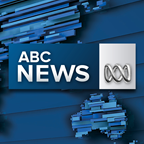
Updated
 Photo:
WA was the only state or territory to post a fall in tourism revenue last year. (Flickr: Pedro Szekely)
Photo:
WA was the only state or territory to post a fall in tourism revenue last year. (Flickr: Pedro Szekely)
International tourists poured a record $40 billion into Australia last year, but as virtually every state posted a big gain in tourism numbers, Western Australia's share has slumped.
Spending in WA fell by 5 per cent from December 2016 to December 2017, the International Visitors Survey found.
Western Australia was the only state or territory to record a drop in revenue, with the Tourism Council of WA describing it as an "unprecedented decline".
The highest-performing state in terms of percentage growth was Tasmania, which recorded a whopping 31 per cent annual increase. South Australia and the ACT also posted big double digit gains.
WA Tourism Minister Paul Papalia said Chinese tourism was a lucrative market, but WA's share was falling well short of its per-capita share.
"We know we're lagging dismally, we get about 4.7 per cent of the national Chinese visitor market," he said.
"I think we should at least try and aim for getting our per-capita share, which would be more like 11 per cent."
International Visitor Survey results
| States and Territories | Spending ($m) | Growth |
|---|---|---|
| New South Wales | $10,424 | 9% |
| Victoria | $7,653 | 11% |
| Queensland | $5,318 | 4% |
| Western Australia | $2,297 | -5% |
| South Australia | $1,149 | 18% |
| ACT | $558 | 23% |
| Tasmania | $497 | 31% |
| Northern Territory | $467 | 10% |
Figures from December 2016 to December 2017
The 'alternative gateway' to Australia
Mr Papalia said the Government was planning to entice more tourists from China and other Asian countries to WA with more direct flights to Perth.
 Photo:
Chinese visitors are seemingly opting for other parts of Australia rather than heading west. (Supplied: Tourism and Events Queensland)
Photo:
Chinese visitors are seemingly opting for other parts of Australia rather than heading west. (Supplied: Tourism and Events Queensland)
"We're chasing direct flights from places like Shanghai, from Tokyo and India to increase our visitation numbers," he said.
"That's the biggest thing you can do.
"At the moment they [Chinese tourists] are a significant player, they're a big-spending visitor market and we want to get more of it."
Mr Papalia said he wanted to market WA as the "alternative gateway" to Australia.
"We are already well-serviced … but just getting more direct flights to Perth and selling yourself as the other way you can come into Australia will help grow our international market," Mr Papalia said.
Tourism WA's CEO has 'no prior experience'
Tourism Council CEO Evan Hall said the tourism industry had reduced prices and invested heavily in new hotels, vessels and tourism experiences, making the figures all the more disappointing.
"States like Tasmania and South Australia with fewer international aviation services … are growing their international tourism by around 20 per cent," he said.
"Meanwhile, WA has lost international market share in visitation, expenditure and nights."
Mr Hall said other states were better at promoting themselves.
"The Government has made tourism jobs growth … a top priority, however there's a huge gulf between the Government's plans and what's being delivered on the ground," he said.
Mr Hall said the "bureaucratisation" of the state's tourism and education marketing had led to a lack of specialised leadership at the top of Tourism WA.
He said the Tourism WA CEO position was currently being filled on a part-time basis by the director-general of the Department of Jobs, Tourism, Science and Innovation, who has "no prior experience in tourism".
 Photo:
Other states are better than WA at promoting themselves and their attractions, critics say.
Photo:
Other states are better than WA at promoting themselves and their attractions, critics say.(Flickr: Stu Rapley)
Mr Hall also said he was concerned the head of marketing position at Tourism WA was "substantially vacant".
"We urge the State Government they urgently appoint a dedicated, full-time CEO with tourism marketing experience," he said.
Perth's 'reputation' as expensive city
Tourism and Marketing expert at Curtin University Professor Kirsten Holmes said WA's poor tourism figure could be due in part to the post-mining-boom economic slump.
 Photo:
The slump in tourist spending could be partly due to Perth becoming cheaper to visit. (Flickr: yaruman5)
Photo:
The slump in tourist spending could be partly due to Perth becoming cheaper to visit. (Flickr: yaruman5)
"It could have gone down because post-boom Perth is becoming cheaper to visit, hotel prices and rates have gone down," she said.
But she said the cheaper hotel rates could also prove to be of significant benefit to WA.
"[Perth] has a reputation as an expensive city, so if we can move beyond that reputation I think that is a good thing," she said.
Professor Holmes also stressed the importance of tapping into the Chinese market, especially given WA's close proximity to Asia.
"We really don't have good direct flights to China yet. We certainly need to improve our flight connections to China," she said.
"Perth is in a very good position to attract this market. We're the closest major [Australian] city to China. We have the same time zone as Beijing."
Professor Holmes said the number of Chinese visitors to WA had increased substantially over the past two or three years, but there was room for significant growth.
Topics: tourism, government-and-politics, wa
First posted






 Add Category
Add Category